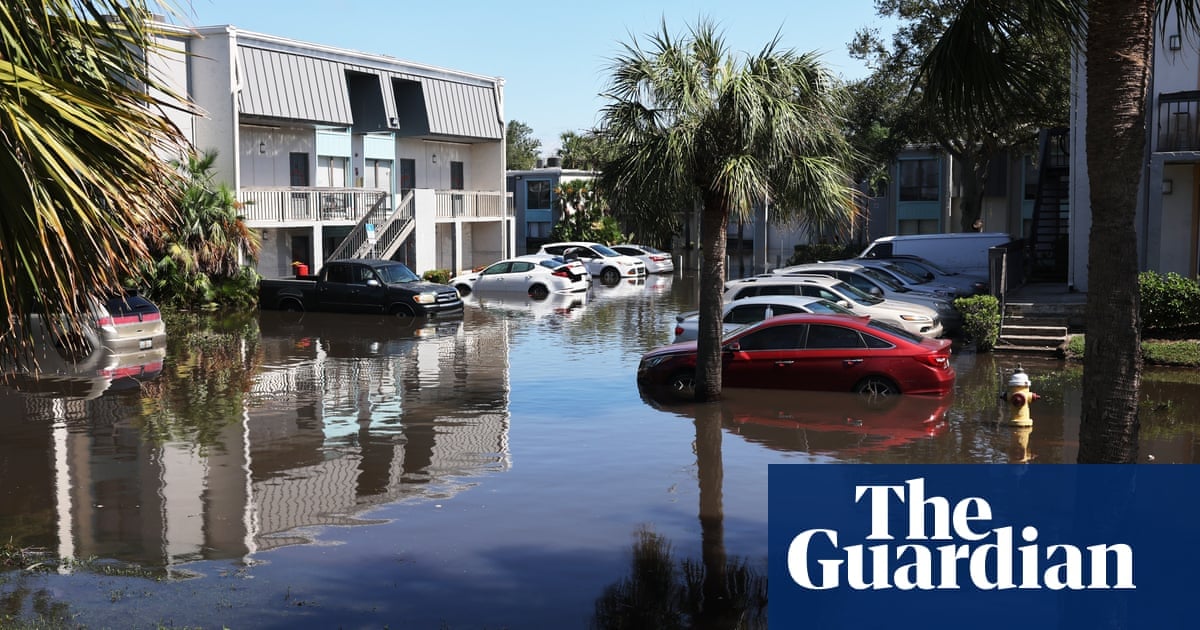Flooding is separate from typical US home insurance and many homeowners are not adequately covered
As millions of US residents begin working to file insurance claims on their homes in the aftermath of Hurricanes Helene and Milton, many could be denied, particularly if their homes were damaged by flooding.
A quirk in the US home insurance market is that flood insurance is separate from typical home insurance, which usually covers wind damage from hurricanes but not flooding. Homeowners must purchase flood insurance separately if they want their homes protected against flooding.
And many don’t. In some areas where Hurricane Helene hit the hardest, less than 1% of homes had flood insurance when the storm hit. In Buncombe county in North Carolina, home to Asheville, only 0.9% of homes had flood insurance, according to data from the Insurance Information Institute.
The number of people with flood insurance in Florida, which was hit by Hurricane Milton two weeks after parts of the state were battered by Helene, is higher than in other parts of the country. But still, the take-up is low. In Sarasota county, which took a direct hit from Milton, just 23% of residents have flood insurance.



Private insurance used to offer flood insurance like 100 years ago, but to stay in business they had to raise premiums to a point where no one could realistically afford it (which is to say that living in a flood zone is not financially feasible for most people). The government had to step in with their own flood insurance program, which was tied to regulation intending to minimize the risk of flooding in at-risk zones so that premiums could remain affordable. Even these measures haven’t been sufficient to keep the program from running out of money, and we’ve been subsidizing it with taxpayer bailouts to keep it afloat.
All this is to say that private insurance is literally incapable of insuring against flood damage, so you can’t blame them for any of this. If you want to blame someone, blame Trump for rolling back standards that would have allowed FEMA to consider climate change in their risk models.
This is an actual logical take. Don’t live in a flood prone area if you don’t take adequate measures to protect your investments. That’s the customers/citizens responsibility. They aren’t blameless.
Hurricanes aren’t just a climate change issue. They’ve existed in the Florida area long before anyone settled it and many were MUCH more destructive in the past.
My family is from FL. Guess where I don’t live. My house is nice and dry (so is all of their’s but that’s because they got lucky and weren’t directly hit).
Also, read and understand what insurance you actually have. Can’t understand the legalese? Then ask the agent what you are covered for and what you aren’t. It’s really not that hard but some people would rather blame others instead of taking personal responsibility.
I had a partially flooded basement due to a rough monsoon season last year, one window well backed up, and I ended up doing all the work myself since I don’t have flood insurance either (where I live it’s super rare). I’m not blaming anyone but myself for that.
I think you’re missing the part where places flooded that have never flooded before. Places that never even saw a hurricane. Unless you plan on moving everything to the tops of mountains, or the middle of an empty plain, anything can flood when enough water hits it.